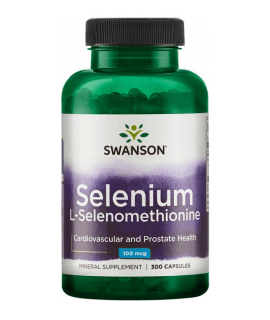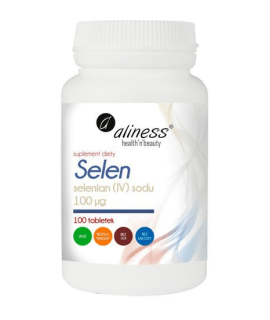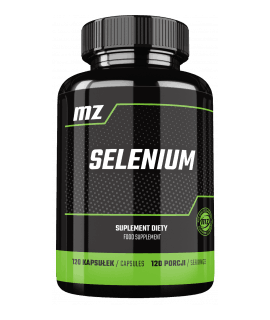Long-term attempts have been made to treat inflammatory thyroid diseases and other serious conditions (cancer!) with selenium preparations. Selenium is part of the enzymes involved in the preparation and distribution of thyroid hormones and "antioxidant" enzymes, so there came an idea of administering it for therapeutic purposes. Most recent studies, however, did not confirm the initial hopes. Selenium preparations are not successful in reversing thyroid disease, but they can have serious side effects (diabetes, neurodegenerative diseases) that depend on the dose of the preparation. Of course, it’s important to prevent selenium deficiency, but the best way to do this is with a healthy diet. Why is this happening? Read the rest of the article to find out!
Questions about selenium
One of the most commonly asked questions about the thyroid is about selenium actions and tratment with selenium. Statements on dietary supplements are always difficult due to the multitude of opinions and advertising activity. Recent publications have given quite a strong arm to the hand, so there are grounds for statements based not on the "own opinions" but in accordance with the principles of EBM - "Medicine Based on Facts."
The role of selenium in the body
Selenium is a part of the centres of active antioxidant enzymes (such as glutathione peroxidase - GPx, thioreductase and others). Many diseases were associated with the so-called "Oxidative stress" - an excess of active forms of oxygen (not always properly called "free radicals"), which is why there is a concept of selenium supplements, in the hope of counteracting the disease mechanisms. The benefits of using selenium have been found in the prevention of cancer (especially liver and prostate), degenerative diseases of the nervous system (such as Parkinson's disease or Alzheimer's disease), immune system disorders (HIV), and many other conditions.
Drug Discov Today Ther Strateg. 2008 March; 5 (1): 5-13. Doi: 10.1016 / j.ddstr.2008.02.001.
In addition, selenium is a component of deiodinase that converts thyroxine (T4) to triiodothyronine (T3) as well as inactivating thyroid hormones. The natural idea seemed to be to use selenium in thyroid diseases, especially in thyroiditis, where the "free radicals" are also a damaging factor.
Another disorder that has been associated with selenium deficiency is obstetric disorders. There was a correlation of selenium levels during pregnancy with preterm birth and gestosis (so-called pregnancy poisoning, otherwise birth postpartum).
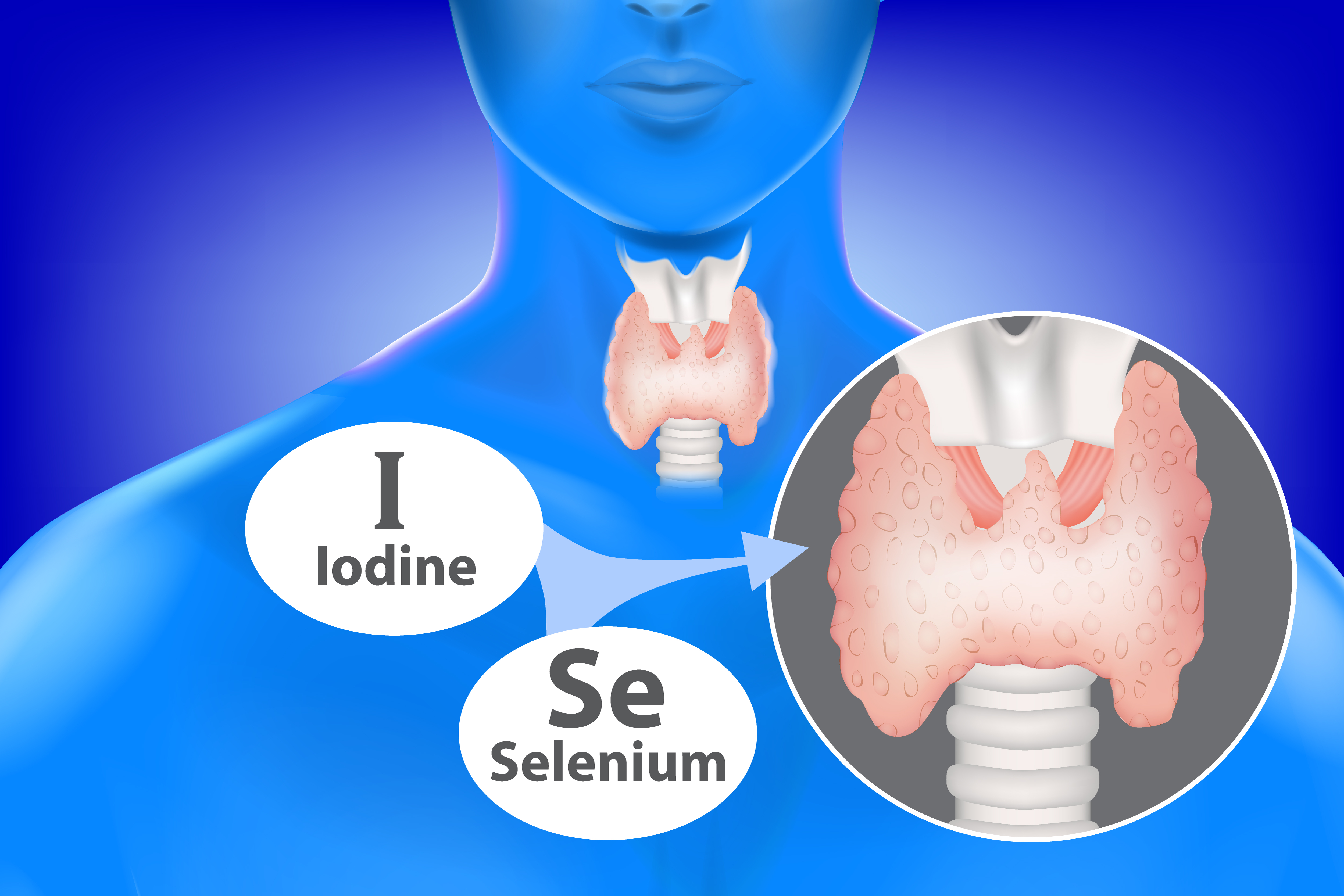
Effects of using selenium supplements
The use of selenium in the form of selenomethionine at a dose of 100-200 μg reduced the incidence of postpartum thyroiditis. There are studies (in patients with Hashimoto's disease) indicating that selenium therapy at 80-200 μg resulted in a significant decrease in aTPO antibody levels, and an increase in the FT3 to FT4 ratio. The above data provided the basis for recommending some centres of selenium preparation for the treatment of inflammatory thyroid diseases, such as those from Greece. However, it should be added that, despite the decline in ATPO antibody levels, there was no evidence of a permanent remission or a change in the dose of thyroid hormone (synthetic thyroid hormone) used in the treatment of Hashimoto-induced hypothyroidism.
Additionally, there are equally well documented studies, from the same geographic regions (including Greece), which deny any significant role of selenium preparations in people with Hashimoto's disease.
At the moment, the treatment of Hashimoto's disease with selenium preparations is not recommended by most expert organizations. Why? The Cochrane Library, a clinical trial verification organization based on the recommendations of EBM, has failed to find evidence that the efficacy of selenium treatment is sufficiently convincing. For the past 20 years, the American Register of ClinicalTrials.gov has been registered and for 10 years the European ISRCNT has been registered for the reliability of the study. The authors of any of the studies demonstrating the effectiveness of selenium have not decided to report their studies in these registers.
There is an ongoing discussion on the use of selenium in ophthalmopathy (ocular symptoms) in the course of Graves-Basedow disease. The positive effect of selenium preparations at a dose of 100 μg over a 6-month period, the interpretation of these studies in the scientific world is a source of controversy. In 2013, a GRASS study was launched to clarify it.
Long-term studies have not confirmed the role of selenium supplements or many other antioxidants in the prevention of cancer and degenerative diseases. In rare cases, chronic obstructive sclerosis (hypertensive degenerative disease of the nervous system with adverse prognosis), hypertension, lipid disorders, and especially type 2 diabetes (adult diabetes) have been observed in people who take selenium chronically.
For example, well-documented studies conducted on a group of more than 7,000 people showed an increase in odds ratio (ORDS) for type 2 diabetes by 1.29 for each additional 10 μg per day of selenium in the diet. This is a surprisingly big value - every extra 10g of selenium increases your chance of getting sick by 29%. Experimental studies have confirmed the harmfulness of excess selenium for insulin-producing pancreas and insulin resistance, common in overweight and obese individuals.
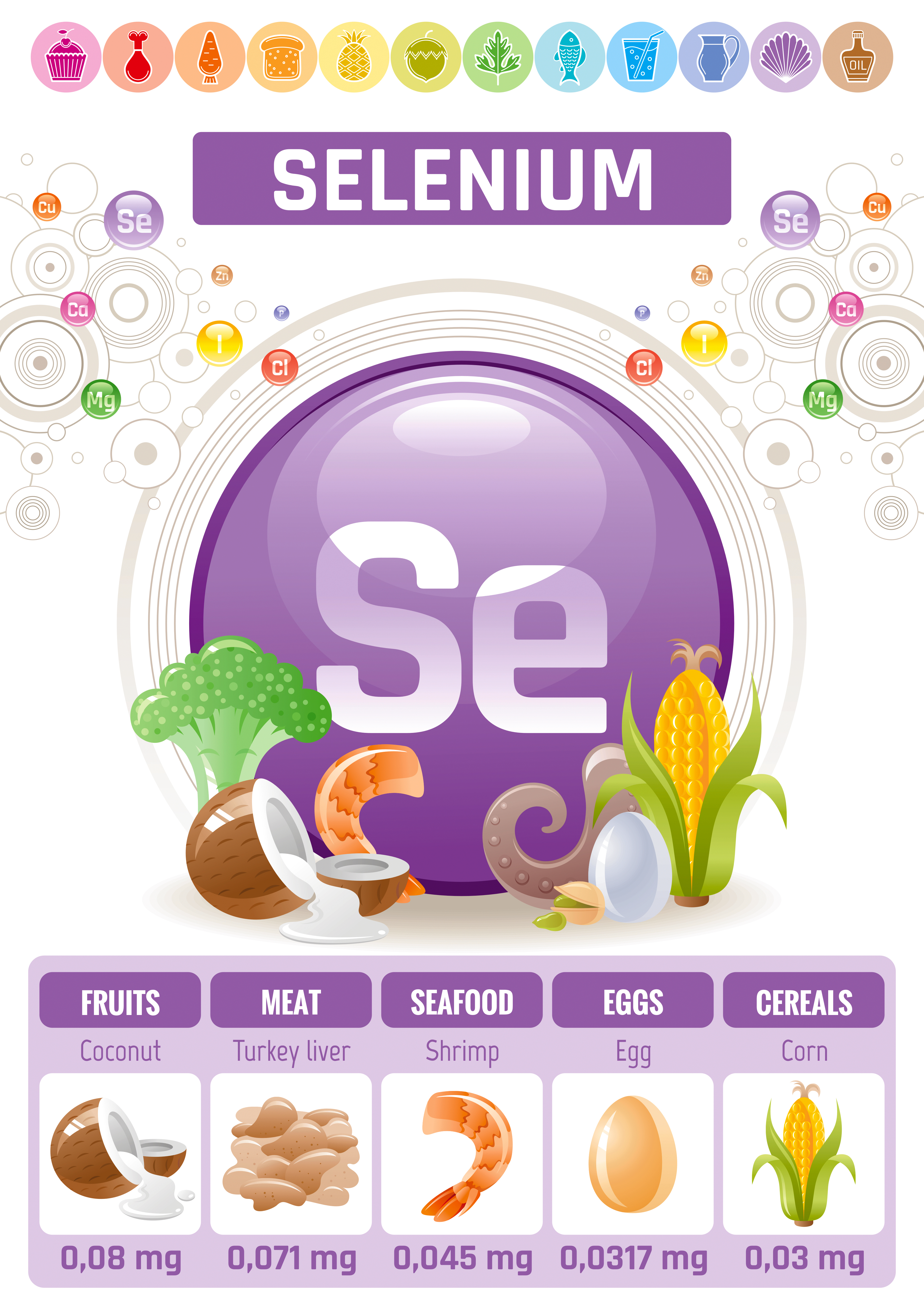
Interpretation of conducted research
Why did selenium supplements not produce the expected benefits? Today we already know that the concept of health protection through the use of antioxidants on a "the more the better" principle is in most cases unsuccessful. Active forms of oxygen (common "free radicals") are important both in the development of diseases and in their mechanisms of counteracting. Free radicals are, for example, nitric oxide, a molecule necessary for the proper functioning of the circulatory system. Obtaining a beneficial effect in one area often associates with unfavourable effect in another.
The health benefits of many of the ingredients of a "healthy" diet (such as flavonoids or tocopherols) are thought to be antioxidant, while they actually work on a variety of mechanisms, and within the living organism may not exhibit antioxidant activity at all. The cell has its own mechanisms for maintaining oxidative-reducing equilibrium, usually incomparably stronger than exogenous substances.
Recommendations for the use of selenium did not often take into account local conditions. The amount of selenium in the diet varies geographically. The importance of deficiency / excess of selenium depend on the genetic diversity - the risk of certain types of cancer or the genetically determined differences in the activity of enzymes, including selenium.
Selenium and thyroid - summary
The above suggestion leads most researchers to the recommended daily dose of selenium at "merely" 55 μg, much different from the initial recommendations.
Estimates made in our country showed an average daily dose of selenium in the diet around 30-40 μg. This encourages the recommendation of enriching the diet with selenium-rich foods, such as grain sprouts, fish or sea crustaceans. A diet that provides appropriate intake of selenium is a healthy diet based on the Pyramid of Healthy Nutrition and Physical Activity, useful in the prevention of most diseases of civilization, which I strongly encourage you to use. Very high contents of selenium are in Brazil nuts. The above calculations are also prudent in the use of tablet supplements, as most of them contain a dose in excess of the recommended daily dose.
During pregnancy, most women take multivitamins with 60 μg selenium doses. In view of the data presented, such treatment should be considered appropriate and the dose of selenium in preparations for pregnant women - appropriate. Selenium demand during pregnancy is higher, selenium preparations are important for preventing premature birth, gestosis and postpartum thyroiditis, a slight overdose of the recommended dose during pregnancy should not have a significant effect on the incidence of diabetes.
At the same time, the above data strongly supports long-term use of selenium doses of 100-200 μg (as is still recommended) in patients with Hashimoto's disease. Such a dose, as some researchers say, reduces the level of anti-ATP antibodies, but it does not reduce the dose of thyroxine (used because of the hypothyroidism accompanying Hashimoto) or persistent remission.
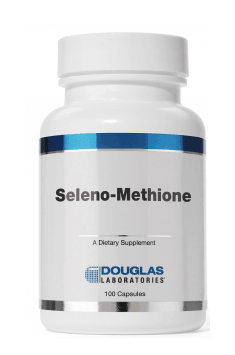
In addition to that, studies that deny the essential role of the above treatment in Hashimoto disease are equally well and even better documented. Studies showing a positive effect of selenium have not been found convincing by the Cochrane Library, an organization that verifies compliance with the EBM standards. The authors did not report them to the clinical trials register ClinicalTrials.gov and ISRCNT, where registration is in favour of honesty of conducted research.
Chronic treatment must expose the patient to the adverse effects of increased diabetes and cardiovascular disease, which can significantly reduce the comfort of life, increase the risk of cardiovascular disease and shorten the duration of life.
The treatment of ophthalmopathy caused by Graves-Basedow disease is quite different story and should be left to the specialists.
The motive for "selenium treatment" in many patients with Hashimoto's disease is overweight or obesity. Such people think that by reducing the level of antibody aTPO with selenium preparations they can overcome metabolic disorders. There’s nothing more wrong - excess selenium intensifies insulin resistance and can contribute to the onset of diabetes, hypertension and lipid disorders, and people with excessive body weight are at risk for these conditions.
The content presented here may surprise many readers as they are completely incompatible with the internet, thousands of "tips" and hundreds of thousands of debates. But please treat them seriously.
Alternative for selenium
In my experience, most people who are interested in taking selenium are people who complain about abnormal weight control or feeling chronic fatigue or discomfort. Such ailments are not always related to thyroid disease or to more extensive endocrine disorders (see section on symptoms). It is also difficult to expect any mineral or vitamin deficiency if a diet based on the Pyramid of Healthy Food and Physical Activity is actually used (exception: periodontal deficiency of vitamin D and deficiency due to certain conditions such as blood loss or B12 deficiency in Addison-Biermer disease) .
Attempting to solve problems often results in a severe atmosphere at the doctor’s office, especially as the public speaker in the case becomes a magnet for people with opposing views who want to prove their point, including those wishing to replace the care of healthy dietary supplements and gain acceptance for further abnormalities.

